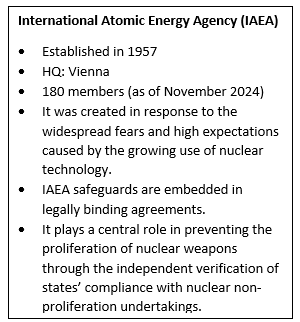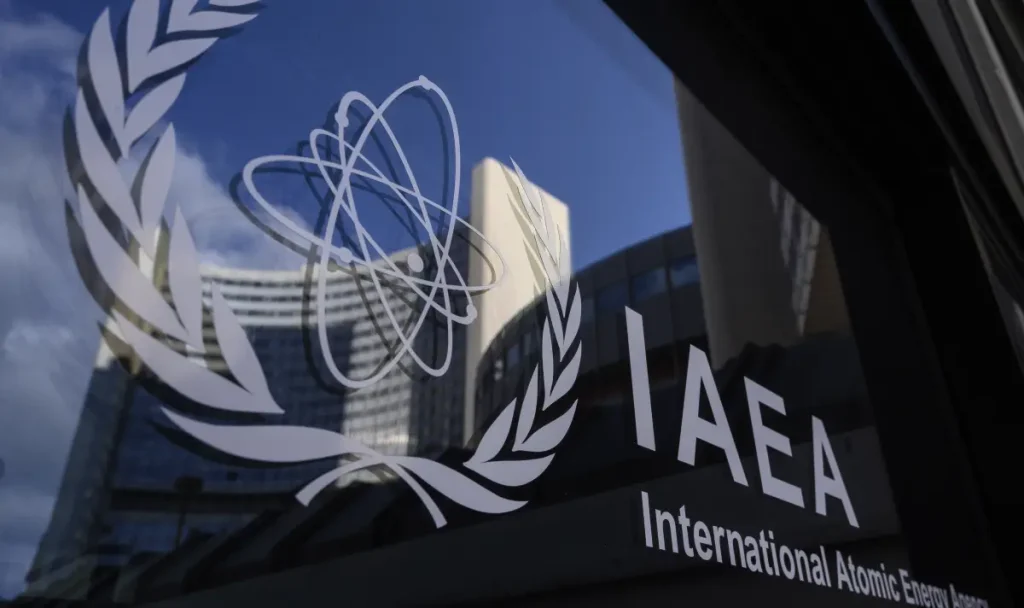Syllabus:
GS 2: Bilateral, regional and global groupings and agreements involving India and/or affecting India’s interests
Context:
The recent findings published by International Atomic Energy Agency (IAEA), a UN nuclear watchdog, in a confidential report highlighted presence of secret nuclear activity in Iran.
Key findings of the report:

- As per the report, Iran has built up 408.6 kilograms of uranium enriched up to 60%, which is a 50% increase from the 274.8 kilograms it had in February.
- This level of enrichment is very close to the 90% needed to make nuclear weapons.
- The IAEA has warned that Iran is the only non-nuclear-weapon country producing this kind of material, calling it a “serious concern.”
- The agency stated that around 42 kilograms of uranium enriched to 60% is enough to make one atomic bomb if further refined, meaning Iran now has enough material for about 10 nuclear weapons.
- Iran’s foreign ministry and nuclear agency denied the report in a joint statement, calling it “politically motivated.”
About Non-Proliferation Treaty (NPT)
- It is an international agreement, which came in existence in 1968, aimed at preventing the spread of nuclear weapons and promoting the peaceful use of nuclear energy.
- The Non-Proliferation Treaty (NPT) defines nuclear-weapon states as those that built and tested a nuclear explosive device before January 1, 1967.
- These countries are the United States, Russia (formerly the Soviet Union), the United Kingdom, France and China. Under the treaty, all other nations are prohibited from acquiring nuclear weapons.
- India has not signed the treaty by stating it as discriminatory.
About Uranium Isotope U-235
- It is a very rare type of heavy metal and also it is the most common fuel used in nuclear energy because it can be split apart quickly through a process started by humans called induced fission.
- This happens when a U-235 nucleus is hit by neutrons. The nucleus takes in an extra neutron, becomes unstable and breaks into two smaller atoms plus some extra neutrons.
- This reaction releases enormous amount of heat and energy which is known as atomic energy.
UPSC PYQ
In what ways would the ongoing U.S-Iran Nuclear Pact Controversy affect the national interest of India? How should India respond to this situation? (CSE-2018)
Mains Practice question
India has consistently maintained a strategic stance outside major international nuclear non-proliferation and arms control treaties. Critically analyse the rationale behind India’s non-signatory status to these treaties and assess the implications for global nuclear governance. (15M, 250 words)

